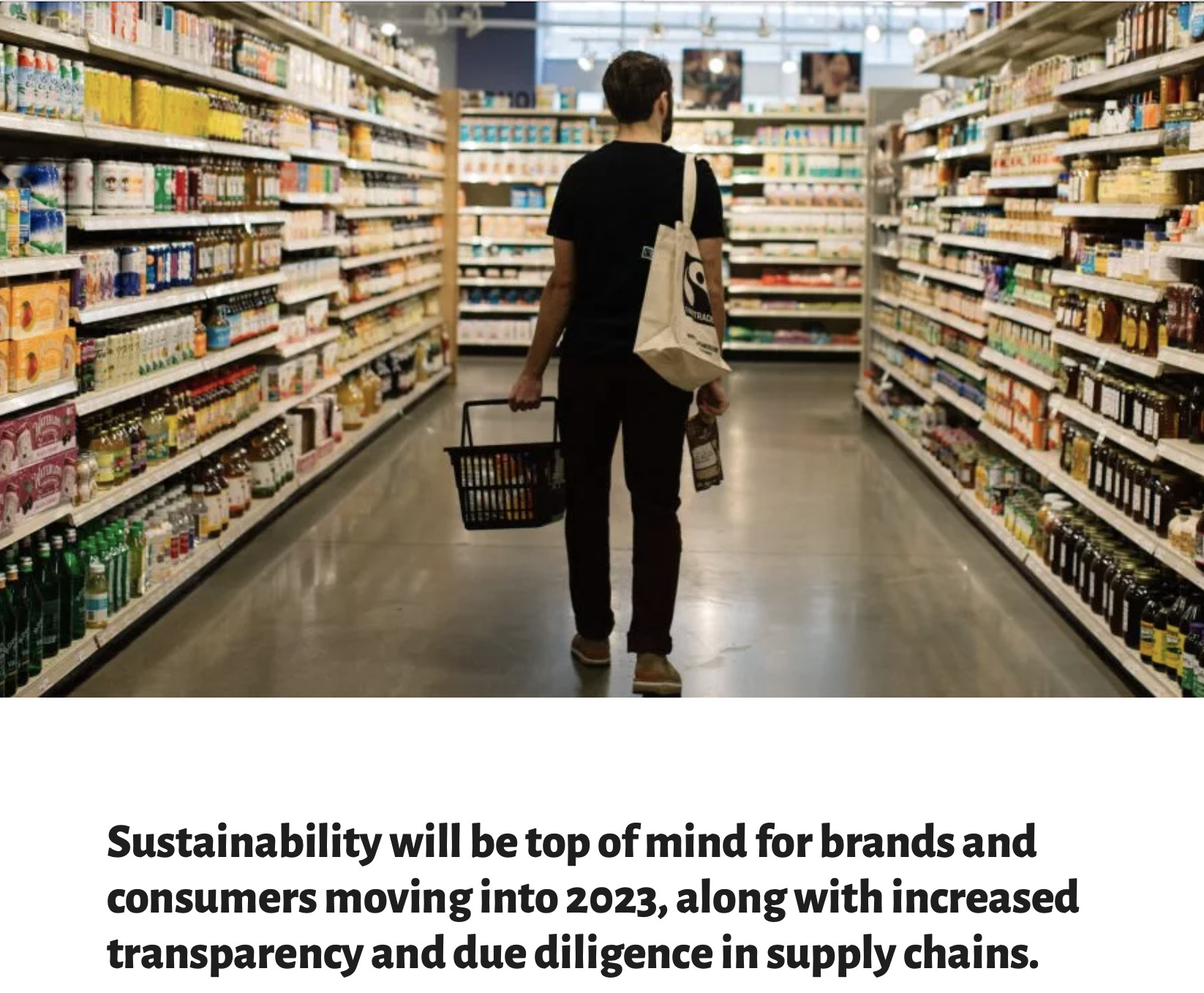Fair Trade America
WASHINGTON – Dec. 13, 2022 – Fairtrade America – the world’s most recognized label for social justice and sustainability – today shared five key trends the organization expects will drive consumer choices and brand action in 2023.
Despite inflation and rising prices on products we use everyday, from gas to groceries, research shows that many consumers are still making thoughtful choices while shopping, choosing products that align with their values. As these consumers become increasingly interested in and informed about supply chains, sourcing and product sustainability, brands will need to invest in practices that drive loyalty among discerning consumers.
Fairtrade America points to five trends that will propel consumer behavior and brand priorities in 2023:
CONSUMERS WILL CHANGE THEIR DIETS TO LOWER ENVIRONMENTAL IMPACT.
According to a recent study by GlobeScan on behalf of the Marine Stewardship Council(MSC), 31% of U.S. consumers who have changed their diet have done so because of an environmental reason, with 11% saying they changed their diet specifically due to climate change. As people seek to lower their impact on the environment with everyday decisions, including the foods they eat, certifications from organizations like Fairtrade America, MSC and Non-GMO Project are making it easier to spot which products are made with the planet in mind.
CONSUMERS, GOVERNMENTS AND ORGANIZATIONS LIKE FAIRTRADE ARE PRIORITIZING A DECREASE IN DEFORESTATION.
Since 2000, 10% of the world’s tree cover has been lost, with the world losing an area the size of London each week, according to the UN. A recent GlobeScan survey found that 86% of consumers try to avoid products that damage biodiversity. Consumers are increasingly aware of deforestation, and more companies are pushing for bans on deforestation and for governments to enact legislation that would combat deforestation.
Oxford Economics found that across industries, 88% of companies have either created a clear mission statement around sustainability or they’re in the process of writing one, but less than half of those respondents said they had significant visibility into their own sourcing of sustainable products, and only 21% had complete visibility into their supplier’s sourcing of sustainable products. Additionally, Deloitte found that consumer brands that aren’t open and transparent are the most at risk of losing meaningful trust with consumers.
The 2021 Sustainable Market Share Index™ found that sustainability-marketed products were responsible for a third of growth in consumer packaged goods from 2015 to 2021, and market share growth continues year over year. Products marketed as sustainable now hold a 17% market share, up +3.3 percentage points from 2015, with significant growth during the pandemic. Additionally, products marketed as sustainable grew 2.7x faster than products not marketed as sustainable.
Regenerative agriculture is a description for farming practices that mimic nature’s design and help decrease impacts of climate change by working to replenish natural resources. Regenerative agriculture is focused on improving soil health and biodiversity. In a Food Insight survey, 30% of consumer respondents selected regenerative agriculture as a top choice among the most beneficial agricultural and consumption practices for the land their food is grown on, though only 19% of respondents were familiar with the term. Fairtrade predicts an expanded focus on regenerative agriculture in 2023 as more brands work with farmers to implement these practices where ingredients are grown.

